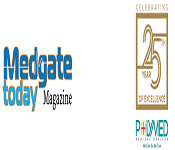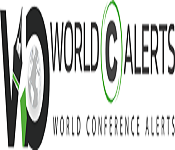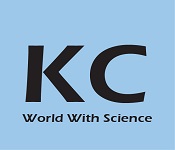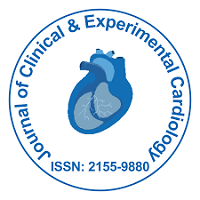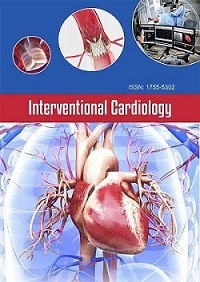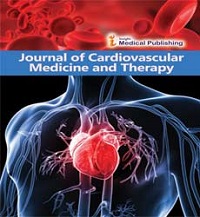Theme: HYBRID CONFERENCE “Outreaching the Rhythm for a healthy heartâ€
Cardio Care 2021
We are delighted to invite you to participate in the “29th International Conference on Cardiology and Cardiovascular Diseases” September 15-16, 2021 as Webinar. The theme of the upcoming conference is “Outreaching the Rhythm for a healthy heart”
Cardio Care 2021 is an elite platform for presenting research on Cardiology , Cardio vascular Diseases and therapeutics, exchanging ideas on the subject, and thereby contributing to the dissemination of knowledge in Cardiology management for the benefit of society. It is the point at which the Cardio vascular disease's future management and novel therapeutics intersect.
Conference Series LLC Ltd proudly announces the “29th International Conference on Cardiology and Cardiovascular Diseases” which will be held during September 15-16, 2021 as Webinar.The conference's theme is, “Outreaching the Rhythm for a healthy heart” which focuses on sharing innovative approaches in the field of cardiology and cardio vascular diseases. The motive of the event is to get awareness which will keep medical professionals au courant the issues affecting the prevention, diagnosis, and treatment of disorder. Discussion on new technology advancement within the field of disorder , current practices in cardiovascular therapy, Cardiac progenitor cells, Hypertension for the first care clinician, cardiac imaging, coronary failure , Congestive coronary failure , Sports Cardiology and more. Lectures will provide a comprehensive state-of-the-art update of the clinical uses of varied techniques within the diagnosis, prognosis, and management of common heart diseases.
Conference Series aims is to supply a chance to share knowledge, expertise along side unparalleled networking opportunities between an outsized number of medical professionals like Directors, Heads, Deans, Professors, Scientists, Researchers, Cardiologists, Founders and Employees of the related companies, Associations, Organizations, Laboratory members and Young researchers working within the field of Cardiology & Heart treatment. This conference mainly focuses on spreading the notice about challenges in these fields and the way to stop and manage the techniques of cardiology.
Target Audience:
CEOs, Directors of Association and Societies, Scientists, Doctors, Professors, Cardiovasculardiseases Lecturers, Cardiology Lecturers, Nurses, Medical Students, surgeons, young researchers, industrial delegates, Pharmaceutical Industries, Herbal institutes, Herbal research centers, Healthcare Industries, Pharmacological.
Aim of the conference:
It attempts to bring together leading academics, researchers, doctors and research scientists to share their perspectives and research findings on all facets of metabolic syndromes and diabetes. It also gives scholars, professionals, doctors and educators a leading interdisciplinary forum to present and address the newest ways to cure Cardio Vascular Diseases.
Abstract Eligibility Criteria
- Individuals may submit up to two regular abstracts as the first author.
- Individuals may submit an unlimited number of Trials in Progress abstracts
- Individuals may serve as a co-author on an unlimited number of abstracts
- All types of Cardiology, Cardiovascular Diseases Medical, and Health research are eligible for submission.
- Abstracts should address scientific questions, detail clinical observations, or contain primary scientific data.
- Data from the long-term follow-up of previously presented clinical trials may be submitted only if significant new information can be shown.
- Interim analysis of a prospective randomized clinical trial will be considered if it is performed as planned in the original protocol and is statistically valid.
- Abstracts of clinically-related subjects should be combined into a single abstract.
Note: Submission of multiple abstracts on a single study may result in the rejection of one or more abstracts
Provide your full name, academic degree(s), institution, address, and email address and recent photograph. You will receive all future correspondence from us regarding the status of your abstract.
The selected abstracts will be published in Conference Proceedings.
Meet the target market, which includes participants from all over the world who are excited to learn about emerging developments and advancements in cardiovascular treatment. this is often the simplest opportunity to outreach the most important gathering of participants from round the world. Conduct presentations distribute and update knowledge about the advancements in Clinical Cardiology, Cardiac Imaging, and Cardiac Regeneration and in several fields of cardiology by receiving name recognition at this 2-days event. World-eminent speakers, most up-to-date researches, latest treatment techniques and therefore the advanced updates in Cardiology are the principal features of this conference. The Conference will comprise of major sessions designed to supply comprehensive lectures that address current issues in various field of Cardiovascular & cardiac diseases. the advantages provided to the attendees are:
• Certificates are going to be provided to all or any speakers, delegates and students
• Opportunity to satisfy world’s renowned at this event
• Keynote forums by Prominent Physicians & Professors
• Best platform for Global business and networking opportunities
• Oral/Poster presentations by Young Researchers
Track 1: Cardiology
Cardiology is a field of medicine concerned with cardiac diseases as well as some aspects of the circulatory system. Medical diagnosis and treatment of congenital heart defects, coronary artery disease, heart failure, heart valve disease and electrophysiology are included in this area.
Related Conferences :
Cardiovascular Conferences | Heart Conferences | Cardiac Surgery Conferences | Cardiovascular 2019 | Cardiovascular Disease Conferences | Cardiovascular Physiology Conferences | Hypertension Conferences | Coronary Artery Disorders Conferences | Stroke Conferences | Heart Attack Conferences | Cardiovascular Disease Conferences | Heart Failure Conferences
Track 2 : Clinical Cardiology
Cardiology is a division of medicine that deals with cardiac diseases and portions of the circulatory system. Studies related to cardiac disorders such congenital heart disease, coronary artery disease, heart failure, cardiovascular heart disease, and their epidemiology and heart pathophysiology are found in Clinical Cardiology. The rapeutic diagnostic and administrative techniques Cardiac medicine, cardiac surgery, risk factors for cardiovascular disorders and recognition. Entry to specialist inpatient services, outpatient cardiac care and treatment of angina, artery disorders , valvular heart disease, and heart failure in the Clinical Cardiology Section. Cardiologists are those who specialize in this area of medicine.
Related Conferences :
Cardiovascular Conferences | Heart Conferences | Cardiac Surgery Conferences | Cardiovascular 2019 | Cardiovascular Disease Conferences | Cardiovascular Physiology Conferences | Hypertension Conferences | Coronary Artery Disorders Conferences | Stroke Conferences | Heart Attack Conferences | Cardiovascular Disease Conferences | Heart Failure Conferences
Track 3 : Pediatric Cardiology
A pediatric cardiologist is a pediatrician who has been qualified extensively to diagnose and treat heart conditions in children. Evaluation and care should start with the fetus since it is now possible to detect heart abnormalities before birth and also to identify congenital heart defects, perform diagnostic procedures such as echocardiograms, cardiac catheterizations. The continuation of heart disease in babies, children and teenagers is controlled on an ongoing basis. In order to avoid both congenital and acquired heart disease in infants, the division is actively engaged in research. Congenital heart failure is different from the kinds of heart disorders that are prevalent in adults. Today it is an additional challenge to heal hearts in tiny bodies.
Related Conferences :
Cardiovascular Conferences | Heart Conferences | Cardiac Surgery Conferences | Cardiovascular 2019 | Cardiovascular Disease Conferences | Cardiovascular Physiology Conferences | Hypertension Conferences | Coronary Artery Disorders Conferences | Stroke Conferences | Heart Attack Conferences | Cardiovascular Disease Conferences | Heart Failure Conferences
Track 4 : Cardiovascular Disease
A class of diseases affecting the heart or blood vessels is cardiovascular disease (CVD). Coronary artery diseases (CAD), such as angina and myocardial infarction, include cardiovascular disease (commonly known as a heart attack). A build-up of fatty deposits within the arteries, known as atherosclerosis, and an increased risk of blood clots are typically associated. Damage to arteries in organs such as the brain, heart, kidneys, and eyes may also be associated with it. Cardiovascular disease is a term that refers to more than one circulatory system disease that affects the lungs, brain, kidneys or other parts of the body, including the heart and blood vessels.
Related Conferences:
Cardiovascular Conferences | Heart Conferences | Cardiac Surgery Conferences | Cardiovascular 2019 | Cardiovascular Disease Conferences | Cardiovascular Physiology Conferences | Hypertension Conferences | Coronary Artery Disorders Conferences | Stroke Conferences | Heart Attack Conferences | Cardiovascular Disease Conferences | Heart Failure Conferences
Track 5 : Heart Disease and Failure
The illnesses that affect the heart are heart diseases. Blood vessel disorders, such as coronary artery disease, heart rhythm issues (arrhythmias) and heart abnormalities, such as congenital heart defects, rheumatic heart disease, hypertensive heart disease, ischemic heart disease, hypertension, etc., are classified in the heart disease umbrella. Heart failure (HF) is a common disorder often referred to as congestive heart failure that occurs after the heart muscle does not pump blood as well as it should. Heart failure occurs when your heart's main pumping chambers (the ventricles) can become stiff and fail to fill properly between beats, especially during increased activity or stress.
- Hyper rheumatic heart disease
- Inflammatory heart disease
- Cardiac arrhythmias
- Cerebrovascular disease
- Coronary artery disease
- Aneurysm
- Cardiomyopathy
Related Conferences :
Cardiovascular Conferences | Heart Conferences | Cardiac Surgery Conferences | Cardiovascular 2019 | Cardiovascular Disease Conferences | Cardiovascular Physiology Conferences | Hypertension Conferences | Coronary Artery Disorders Conferences | Stroke Conferences | Heart Attack Conferences | Cardiovascular Disease Conferences | Heart Failure Conferences
Track 6 : Diabetic Cardiovascular Disease
The word diabetic cardiovascular disease (DCD) refers to heart disease that occurs in people with diabetes, raising the risk of heart attack and stroke associated with clots (cardiovascular events). Peripheral artery disease-a case in which the arteries are narrowed, the chance of coronary injury is often increased by minimizing blood discharge to the arms and legs. Diabetes is a condition where the amount of blood glucose (sugar) in the body is too high and inhibits the capacity of the body to generate or use insulin. Normally, the food you consume is transformed into energy by your body. To help transport this energy to cells, insulin is released. "The insulin functions as a "key.
Related Conferences :
Cardiovascular Conferences | Heart Conferences | Cardiac Surgery Conferences | Cardiovascular 2019 | Cardiovascular Disease Conferences | Cardiovascular Physiology Conferences | Hypertension Conferences | Coronary Artery Disorders Conferences | Stroke Conferences | Heart Attack Conferences | Cardiovascular Disease Conferences | Heart Failure Conferences
Track 7 : Obesity & Stroke
The risk for heart disease and stroke is increased by obesity. But it harms more than just the diagnosis of the heart and the system of blood vessels. It is also a significant cause of respiratory disorders, osteoarthritis and gallstones. In addition to weight gain, heart-damaging lifestyle decisions such as lack of exercise & a fat laden diet are a common result. Obesity is closely associated with various health problems, including high blood pressure, diabetes, and elevated blood cholesterol, which form the basis of cardiovascular disease. Having diabetes or pre-diabetes places one at elevated risk of stroke and heart disease. By controlling blood glucose, one may reduce the risk (also called blood sugar), The levels indicated by diabetes experts for good health are similar to the recommended target figures for hypertension and blood cholesterol. The same problem, atherosclerosis, can cause stroke and coronary heart disease.
- Diabetes Mellitus and Stroke
- Abdominal Obesity
- Vascular dementia
- Abnormal cholesterol and high triglycerides
- Hemorrhagic Strokes (Bleeds)
- Metabolic syndrome
Related Conferences:
Cardiovascular Conferences | Heart Conferences | Cardiac Surgery Conferences | Cardiovascular 2019 | Cardiovascular Disease Conferences | Cardiovascular Physiology Conferences | Hypertension Conferences | Coronary Artery Disorders Conferences | Stroke Conferences | Heart Attack Conferences | Cardiovascular Disease Conferences | Heart Failure Conferences
Track 8 : Cardiac Regeneration
Reparative stem cells are capable of restoring function of damaged tissue by renewing cell growth in cardiac cells killed by heart disease or by a rapidly evolving and controversial area of study. Cardiac regeneration . A decade ago, stem cell-based treatments were known to be cardiac regeneration clinical trials. Now, stem cells derived from the bone marrow (BMCs), adult stem cells from adipose or cardiac tissue are used in current clinical studies with inconsistent results but the outcomes as of safety and feasibility are encouraged for cardiac regeneration. Myocardial regeneration, transplantation of stem or progenitor cells, stimulation of endogenous cardiac repair by pharmacological agents and Tissue engineering will play a major role in cardiac regeneration in the future.
Related Conferences :
Cardiovascular Conferences | Heart Conferences | Cardiac Surgery Conferences | Cardiovascular 2019 | Cardiovascular Disease Conferences | Cardiovascular Physiology Conferences | Hypertension Conferences | Coronary Artery Disorders Conferences | Stroke Conferences | Heart Attack Conferences | Cardiovascular Disease Conferences | Heart Failure Conferences
Track 9 : Arrhythmias
The irregularity in the pace or rhythm of your pulse is an arrhythmia. This means the heart beats too hard, too slowly, or in an uneven pattern. It is so-called tachycardia if the heart beats faster than normal. It is so-called bradycardia. if the heart beats too slowly. Atrial fibrillation is another common kind of arrhythmia; an erratic and rapid pulse occurs here. There are hundreds of heart arrhythmias of various forms. The natural rhythm of the heart, called the normal rhythm of the sinus, may be disrupted by automatic failure, such as sick sinus syndrome, or by overactivity , such as inappropriate tachycardia of the sinus. Several variables can influence the rhythm of your heart, such as sudden heart attack, congenital heart defects, stress, and smoking. Arrhythmias may also be caused by certain elements or drugs. The magnitude of cardiac arrhythmias depends, in general, on the existence or absence of structural cardiac disease.
Related Conferences:
Cardiovascular Conferences | Heart Conferences | Cardiac Surgery Conferences | Cardiovascular 2019 | Cardiovascular Disease Conferences | Cardiovascular Physiology Conferences | Hypertension Conferences | Coronary Artery Disorders Conferences | Stroke Conferences | Heart Attack Conferences | Cardiovascular Disease Conferences | Heart Failure Conferences
Track 10 : Congenital Heart Diseases
The problem with the structure of the heart that has been present since birth is a congenital heart defect. The most prevalent type of birth defects is congenital heart defects. The walls of the heart, the heart valves, and the arteries and veins near the heart may be involved in the defects. They can interrupt the heart's regular flow of blood. Atherosclerosis is a disease that happens in the walls of the arteries as a material called plaque builds up. This build-up decreases the arteries' width, making it impossible for blood to flow through. It will interrupt the flow of blood if a blood clot occurs. A heart attack or stroke may result in this. Because of birth defects, certain heart defects also occur in humans.
Related Conferences:
Europe : the European Cardiology Society ; the British Cardiovascular Society ; the World Heart Federation ; the British Cardiovascular Prevention and Rehabilitation Association ; the World Heart Failure Society ; the Austrian Heart Foundation ; the Austrian Cardiology Society ; the Philippine Heart Association ; the Belgian Cardiology Society ; the Spanish Cardiology Society ; the British Cardiac Society ; International Cardiology Academy ; British Heart Foundation ; Society of British Hypertension.
Track 11 : Women Cardiology
The rate of growth in cardiology for females is much slower than in other fields. 29 percent of women did not receive radiation information at all.
The leading cause of death among women in the States continues to be cardiovascular diseases. Sex-specific knowledge on cardiovascular disease has been gradually growing, but it is not systematically collected or translated into practise.
- Pregnancy-related disorders and CVD risk association
- Persistence of weight gain after pregnancy
- Radiation and chemotherapy for breast cancer
- ASA in women with diabetes mellitus
- Ischemic heart disease in women
- Acute coronary syndromes in women
Related Conferences:
Cardiovascular Conferences | Heart Conferences | Cardiac Surgery Conferences | Cardiovascular 2019 | Cardiovascular Disease Conferences | Cardiovascular Physiology Conferences | Hypertension Conferences | Coronary Artery Disorders Conferences | Stroke Conferences | Heart Attack Conferences | Cardiovascular Disease Conferences | Heart Failure Conferences
Track 12 : Hypertension
Hypertensive heart condition is caused by the high vital sign that affects the guts . the guts working under increased pressure results in another heart disorders. Hypertensive heart condition includes coronary failure , thickening of the guts muscle, arteria coronaria disease, etc. within the absence of coronary failure , hypertension, with or without enlargement of the guts (left ventricular hypertrophy) is typically symptomless. Hypertensive heart condition can cause serious health problems. It’s the leading explanation for death from high vital sign .
- Coronary artery atherosclerosis.
- Diastolic dysfunction due to other etiologies.
- Athlete's heart (with LVH)
- Hypertrophic cardiomyopathy.
- Congestive heart failure due to other etiologies.
- Atrial fibrillation due to other etiologies.
Related Conferences:
Cardiovascular Conferences | Heart Conferences | Cardiac Surgery Conferences | Cardiovascular 2019 | Cardiovascular Disease Conferences | Cardiovascular Physiology Conferences | Hypertension Conferences | Coronary Artery Disorders Conferences | Stroke Conferences | Heart Attack Conferences | Cardiovascular Disease Conferences | Heart Failure Conferences
Track 13 : Cardiac Surgery
Cardiovascular surgery, also referred to as surgery, Thoracic surgery is conducted by cardiac surgeons on the heart or large arteries and is involved in the surgical care of organs within the thorax in the field of medicine. There are five forms of heart surgery that are
- Open heart operation
- New surgery with beating-heart
- Transplanting the heart
- By transfer grafting, coronary artery
- Coronary artery bypass grafting (CABG)
Related Conferences:
Cardiovascular Conferences | Heart Conferences | Cardiac Surgery Conferences | Cardiovascular 2019 | Cardiovascular Disease Conferences | Cardiovascular Physiology Conferences | Hypertension Conferences | Coronary Artery Disorders Conferences | Stroke Conferences | Heart Attack Conferences | Cardiovascular Disease Conferences | Heart Failure Conferences
Track 14 : Cardio-Oncology
In many parts of the world, cancer and cardiovascular disease are the leading causes of death, and cardio-oncology is the intersection of cardiac problems in cancer treated patients. For both diseases arising within the same patient, there are many explanations. Risk factors such as age, tobacco use and obesity are shared between coronary artery disease (CAD) and cancer.
The effects of radio- and chemotherapy in long-term malignancy survivors could also be other causes. These procedures have a direct effect on the heart, which needs surgical correction in some cases. During long-term follow-up after coronary artery bypass graft, malignancy may also happen (CABG). The growth of medical facilities makes it possible to diagnose heart disease and treatable cancer.
• Chemotherapy agents dependent on platinum
• Heart Disease Radiation-Induced
• Targeting tyrosine kinases for cancer treatment
• Cardiac failure due to chemotherapy
Related Conferences:
Cardiovascular Conferences | Heart Conferences | Cardiac Surgery Conferences | Cardiovascular 2019 | Cardiovascular Disease Conferences | Cardiovascular Physiology Conferences | Hypertension Conferences | Coronary Artery Disorders Conferences | Stroke Conferences | Heart Attack Conferences | Cardiovascular Disease Conferences | Heart Failure Conferences
Track 15 : Sports Cardiology
Sports Cardiology achieves heart screenings that detect potentially serious cardiovascular issues in young athletes. Sudden cardiac arrest (SCA) is that the major reason of death in exercising young athletes and is most ordinarily depart by problems as structural heart disorders or electrical circuitry issues which aren't commonly found during routine physical examinations. Most of the conditions that cause sudden cardiac death in young athletes are evaluated by an electrocardiogram (ECG), a non-invasive test which calculates the electrical activity of the heart.
Related Conferences:
Cardiovascular Conferences | Heart Conferences | Cardiac Surgery Conferences | Cardiovascular 2019 | Cardiovascular Disease Conferences | Cardiovascular Physiology Conferences | Hypertension Conferences | Coronary Artery Disorders Conferences | Stroke Conferences | Heart Attack Conferences | Cardiovascular Disease Conferences | Heart Failure Conferences
Track 16 : Invasive and Interventional Cardiology
Interventional cardiology may be a chapter of cardiology that deals particularly with the catheter-based treatment of structural heart diseases. an enormous number of procedures are often acted on the guts by catheterization. This most ordinarily includes the insertion of a sheath into the arteria femoralis (but, in practice, any large peripheral artery or vein) and cannulating the guts below X-ray visualization (usually fluoroscopy).
Related conferences:
Cardiovascular Conferences | Heart Conferences | Cardiac Surgery Conferences | Cardiovascular 2019 | Cardiovascular Disease Conferences | Cardiovascular Physiology Conferences | Hypertension Conferences | Coronary Artery Disorders Conferences | Stroke Conferences | Heart Attack Conferences | Cardiovascular Disease Conferences | Heart Failure Conferences
Track 17 : Molecular and Cellular Cardiology
Molecular and Cellular Cardiology may be a new and fast-growing area of cardiovascular medicine that aims to use biology techniques for the mechanistic investigation, diagnosis, prevention and treatment of disorder . As an emerging discipline, it's changed conceptual thinking of cardiovascular development, disease etiology and pathophysiology and advancing knowledge of the mechanisms liable for both normal and diseased cardiovascular function.
Related Conferences:
Cardiovascular Conferences | Heart Conferences | Cardiac Surgery Conferences | Cardiovascular 2019 | Cardiovascular Disease Conferences | Cardiovascular Physiology Conferences | Hypertension Conferences | Coronary Artery Disorders Conferences | Stroke Conferences | Heart Attack Conferences | Cardiovascular Disease Conferences | Heart Failure Conferences
Track 18 : Cardiovascular Engineering
Cardiovascular Engineering may be a wide spectrum of research, from basic to transitive altogether attributes of cardiovascular physiology and medical treatment. The distribution of research that utilizes engineering principles and methods to reinforce basic knowledge and technological solutions associated with circulatory system . Coverage ranges from subcellular to systems level topics, including other implantable medical devices like hemodynamics, tissue biomechanics, functional imaging, surgical devices, electrical physiology, tissue engineering and regenerative methods, diagnostic tools, transmission and delivery of biologics and biosensors.
Related Conferences:
Cardiovascular Conferences | Heart Conferences | Cardiac Surgery Conferences | Cardiovascular 2019 | Cardiovascular Disease Conferences | Cardiovascular Physiology Conferences | Hypertension Conferences | Coronary Artery Disorders Conferences | Stroke Conferences | Heart Attack Conferences | Cardiovascular Disease Conferences | Heart Failure Conferences
Track 19 : Cardiovascular Toxicology and Pharmacology
Cardiovascular pharmacology is that the main study of the consequences of medicine on the whole circulatory system , which incorporates the guts and blood vessels. Cardiovascular Toxicology deals with the adverse effects on the guts or blood systems which result from exposure to toxic chemicals. It describes safety data of detrimental effects of latest cardiovascular drugs. Pharmacology of vascular endothelium deals with modifications of endothelial cells and therefore the vasculature play an important part within the pathogenesis of a good range of the foremost dreadful of human diseases, as endothelial cells have the vital role of participating within the maintenance of patent and functional capillaries.
Related Conferences:
Cardiovascular Conferences | Heart Conferences | Cardiac Surgery Conferences | Cardiovascular 2019 | Cardiovascular Disease Conferences | Cardiovascular Physiology Conferences | Hypertension Conferences | Coronary Artery Disorders Conferences | Stroke Conferences | Heart Attack Conferences | Cardiovascular Disease Conferences | Heart Failure Conferences
Track 20 : Percutaneous coronary interventions
Percutaneous coronary intervention (PCI) may be a non-surgical procedure wont to treat narrowing (stenosis) of the coronary arteries of the guts found in arteria coronaria disease. After accessing the blood stream through the femoral or arteria radialis , the procedure uses coronary catheterization to see the blood vessels on X-ray imaging. After this, an interventional cardiologist can perform a coronary angioplasty, employing a balloon catheter during which a deflated balloon is advanced into the obstructed artery and inflated to alleviate the narrowing; certain devices like stents are often deployed to stay the vessel open. Various other procedures also can be performed. When arteria coronaria disease causes pain or attack , percutaneous coronary interventions, like angioplasty alone or with a stent, can restore blood flow to your heart
Related Conferences:
Cardiovascular Conferences | Heart Conferences | Cardiac Surgery Conferences | Cardiovascular 2019 | Cardiovascular Disease Conferences | Cardiovascular Physiology Conferences | Hypertension Conferences | Coronary Artery Disorders Conferences | Stroke Conferences | Heart Attack Conferences | Cardiovascular Disease Conferences | Heart Failure Conferences
Track 21 : Cardiac Pharmacology
Cardiovascular pharmacology deals with the medication of cardiac diseases. The Cardiac Drugs are wont to treat conditions of the associated with heart or the circulatory or vascular biology Many categories of cardiovascular agents are available to treat the varied cardiovascular conditions. the foremost commonly used sub-category drugs include Sodium, potassium, calcium channel blockers, ACE-inhibitors and Cardiac biomarkers. There are many sorts of cardiovascular drugs within the market that include Cardiac glycosides, anti-coagulants, anti-arrhythmic agents, anti-anginal agents and anti-hypertensive agents
• Drug-Induced Cardiac Toxicity
• Novel Anti-Inflammatory Therapies for Atherosclerosis
• Development of Novel Anti-Ischemic Agents
Related Conferences:
Cardiovascular Conferences | Heart Conferences | Cardiac Surgery Conferences | Cardiovascular 2019 | Cardiovascular Disease Conferences | Cardiovascular Physiology Conferences | Hypertension Conferences | Coronary Artery Disorders Conferences | Stroke Conferences | Heart Attack Conferences | Cardiovascular Disease Conferences | Heart Failure Conferences
Track 22 : Cardiac Nursing
Cardiac nursing may be a RN who specializes to figure with patients that suffer from various conditions of the circulatory system . Cardiac nurses help to treat conditions like unstable angina, cardiomyopathy, arteria coronaria disease, congestive coronary failure , myocardial infarct and cardiac dysrhythmia under the direction of a cardiologist. Cardiac nurses add many various environments, including coronary care units (CCU), cardiac catheterization, medical care units (ICU), operating theatres, cardiac rehabilitation centers, clinical research, cardiac surgery wards, cardiovascular medical care units (CVICU) and cardiac medical wards
- Cardiac remodeling
- Hemodynamic monitoring
- Monitoring cardiac and vascular readings
- Intensive hemodialysis
Related Conferences:
Cardiovascular Conferences | Heart Conferences | Cardiac Surgery Conferences | Cardiovascular 2019 | Cardiovascular Disease Conferences | Cardiovascular Physiology Conferences | Hypertension Conferences | Coronary Artery Disorders Conferences | Stroke Conferences | Heart Attack Conferences | Cardiovascular Disease Conferences | Heart Failure Conferences
Track 23 : Current Research in Cardiology
Advances in medicine mean that it can be successfully managed to extend the survival rate if coronary heart disease (CHD) is diagnosed at an early stage. If the disease is detected at its earliest stages, successful treatment is more probable. In order to halt or reverse the progress of the disease, our current research focuses on early detection of CHD. The ongoing research involves pioneering the use of cardiac scanning in the early diagnosis of diabetic heart disease, Development of Nuclear Cardiology techniques for cardiac disease detection, Drug development and evaluation of heart disease therapies used, Identification of novel biological markers for the prediction of cardiac disease presence, Ethnic and Socioeconomic Differences Analysis
Related Conferences :
Cardiovascular Conferences | Heart Conferences | Cardiac Surgery Conferences | Cardiovascular 2019 | Cardiovascular Disease Conferences | Cardiovascular Physiology Conferences | Hypertension Conferences | Coronary Artery Disorders Conferences | Stroke Conferences | Heart Attack Conferences | Cardiovascular Disease Conferences | Heart Failure Conferences
Track 24 : The Evolving Practice of Cardiovascular Precision Medicine
The advent of high throughput technologies (genomics, metabolomics, proteomics) and large data analytics (machine learning, artificial intelligence), with the expansion of digital health tools, has ushered within the era of precision medicine in disorder . The concept of personalizing therapies to maximise benefits and minimize risk for patients is accessible . While healthcare providers have overwhelmingly expressed interest in innovation and therefore the transformation of drugs , most have had little to no exposure to the info , platforms, methods, and clinical applications that form the inspiration of Precision Medicine.
In clinical applications, the course focuses on three main areas that are rapidly growing:
- In cardiovascular disease prevention and treatment, genomic medicine
- Applications of machine learning in cardiovascular imaging
- Integration of digital health tools for cardiovascular treatment personalization
Related Conferences :
Cardiovascular Conferences | Heart Conferences | Cardiac Surgery Conferences | Cardiovascular 2019 | Cardiovascular Disease Conferences | Cardiovascular Physiology Conferences | Hypertension Conferences | Coronary Artery Disorders Conferences | Stroke Conferences | Heart Attack Conferences | Cardiovascular Disease Conferences | Heart Failure Conferences
Market report supported the medicine & vessel devices offer the clear image on the varied business half within the field of recent development of devices. It conjointly provides market forecasts for the future years. This report profiles a number of the leading players within the world marketplace for the aim of associate in-depth study of the challenges featured by the trade moreover because the growth opportunities within the market. world vessel medicine market is predicted to set of all grow and see speedy innovation with the introduction of novel medication and devices getting into the market. in line with this research, polygenic disease is one in every of the cogent and major factors resulting in the fashionable upset changing into a lot of rife.
Global internal organ Surgery Devices market is totally supported researched and analyzed within the report back to facilitate market players to boost their business strategy and guarantee long-run success. This authors of the report have used easy-to-understand the language and easy applied math pictures however provided thorough info and elaborated knowledge on the world internal organ Surgery Devices market. This report provides players with helpful info and submits result-oriented concepts to realize a competitive near the world internal organ Surgery Devices market. It shows however totally different players square measure competitory within the world internal organ Surgery Devices market and discusses ways they're victimization to see themselves from alternative participants.
Covid19 Impact on the world Interventional medicine Market
In 2020, the world interventional medicine market activity was valued at around $11.1 billion, down from nearly $14 billion in 2019 because of the impact of COVID-19. The world market activity is predictedticipated to achieve an astonishing $16.2 billion in a pair of 027.
The World Health Organization confirmed COVID-19 as a prevailing in March 2020. Since then, many patients round the world had their care delayed as hospitals canceled non-urgent operations, together with some surgeries for individuals with heart and respiratory organ conditions. As a result, each region round the world has intimate info low numbers for angiographies and angioplasties in 2020.
Global Interventional medicine Market Insights
Global Technologies, like laptop picturing (CT), Optical Coherence picturing (OCT), and resonance Imaging (MRI) are getting a lot of economical at designation vessel Diseases. These square measure higher-resolution technologies square measure expected to be higher to distinguishing disorder throughout the primary procedure,reverse the requirement for a second procedure and limiting the whole variety of diagnostic procedures performed
Top Most Hospital in USA
- Mayo Clinic, Rochester, Minnesota
- Cleveland Clinic
- Johns Hopkins Hospital
- New York -Presbyterian Hospital
- UCLA Medical Center​
- Massachusetts General Hospital
- Cedars-Sinai Medical Center
- UCSF Medical Center
Top Middle East Hospitals in
- Hadassah medical center
- Chaim Sheba medical center
- Rambam health care campus
- Hamad medical Corp
- Shaare zedek medical center
- Meir medical center
- Shariati hospital
- Farabi hospital
- Tehran heart center
- Marmara university hospital
- Medical biology research center
Top Most university in USA
- Massachusetts Institute of Technology
- Harvard University
- Stanford University
- Cornell University
- University of Minnesota
- University of Chicago
- University of Florida
- Arizona state university
- Duke university
- University of Marylan
Top Most Hospitals in Europe
- Freeman Hospital
- Birmingham Children's Hospital
- Nuffield Health
- Royal Marsden Hospital
- St Thomas Hospital
- Charite university hospital
- University hospital of Ludwing maximilian
- Motol university hospital
- Vienna general hospital
- Sahlgrenska university hospital
Top Most University in Europe
- Technical University of Munich
- Karolinska Institute
- Heidelberg University
- ETH Zurich
- KU Leuven – University of Leuven
- Erasmus University Rotterdam
- LMU Munich
- University of Amsterdam
- Paris Sciences et Letters – PSL Research University of Paris
Conference Highlights
- Cardiology
- Types of Cardiology
- Cardiovascular Disease
- Heart Disease and Failure
- Diabetic Cardiovascular Disease
- Obesity & Stroke
- Cardiac Regeneration
- Arrhythmias
- Congenital Heart Diseases
- Women Cardiology
- Hypertension
- Cardiac Surgery
- Cardio-oncology
- Sports Cardiology
- Invasive and Interventional Cardiology
- Molecular and Cellular Cardiology
- Cardiovascular Engineering
- Cardiovascular Toxicology and Pharmacology
- Percutaneous coronary interventions
- Cardiac Pharmacology
- Cardiac Nursing
- Current Research in Cardiology
- The Evolving Practice of Cardiovascular Precision Medicine
To share your views and research, please click here to register for the Conference.
To Collaborate Scientific Professionals around the World
| Conference Date | September 15-16, 2021 | ||
| Sponsors & Exhibitors |
|
||
| Speaker Opportunity Closed | |||
| Poster Opportunity Closed | Click Here to View | ||
Useful Links
Special Issues
All accepted abstracts will be published in respective Our International Journals.
- Journal of Clinical Cardiology and Research
- Journal Of Interventional Cardiology
- Journal Of Clinical & Experimental Cardiology
Abstracts will be provided with Digital Object Identifier by









